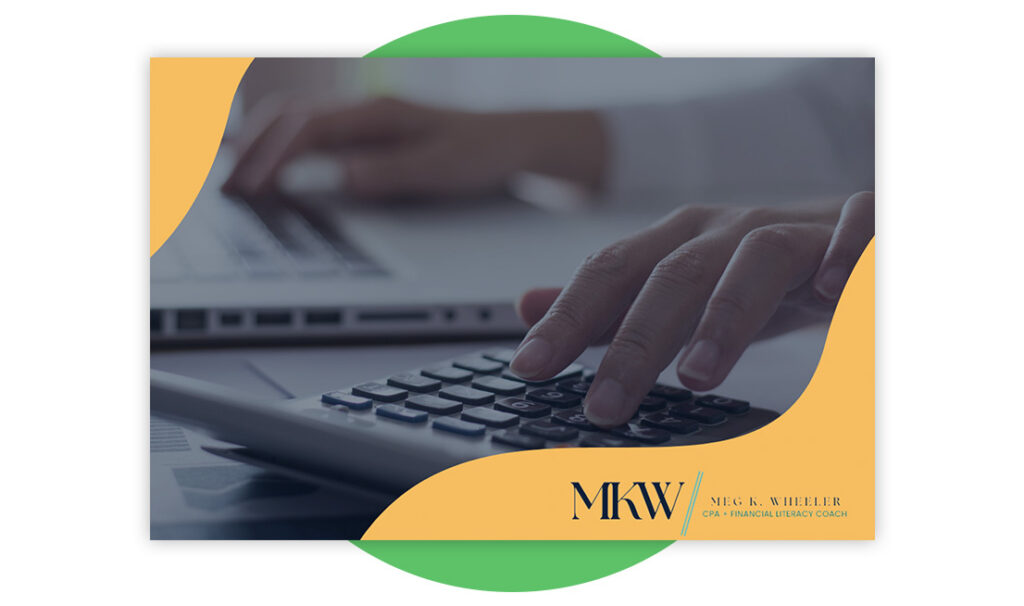by Meg K. Wheeler, CPA and Financial Literacy Coach
They say nothing in life is certain besides death and taxes. That might be true, but what is not certain is how the IRS would like us to file our taxes from year to year. With requirements that seem to change as often as the latest viral TikTok trend, small business owners are often left scrambling to decipher the latest batch of rules. For tax year 2022, the IRS made one change that will have a big impact on small businesses and sole proprietors. It all has to do with a little form called the 1099-K.
What is a Form 1099-K?
Form 1099-K (click the link to view a blank one) is an official IRS document that is titled “Payment Card and Third-Party Network Transactions.” Payment processors like Stripe, PayPal, and Venmo will issue this form to users, as required. The form includes information about both the payment processor AND the business using it such as:
- Payments received
- Monthly breakdown of total payments
- State and federal taxes withheld
Before 2022, only businesses receiving payments from payment processors in excess of $20,000 who conducted at least 200 transactions would receive a 1099-K form. Regardless of whether the business received this form or not, they were required to report this income on their applicable tax return.
Beginning in 2022, businesses that receive at least $600 on each payment processor’s platform may receive a Form 1099-K. Receiving this form does NOT change your requirement to report and (possibly) pay tax on this income. The issuance of the form simply notifies the IRS that you received this income, so that they can confirm it is properly reported on your tax return.
Note this change applies to all payment platform processors such as Stripe, Paypal, Cash App, Square, Venmo, Zelle, etc.
For more information on this change visit the IRS website.
Why would the IRS do this?
With the expansion of the gig economy, side hustles, and the general digitization of business, a lot of business revenues are going unreported on tax returns. This means that the IRS is losing out on a lot of lost taxes, which go to fund important and critical infrastructure like our roads, schools and hospitals.
Remember, taxes are not the enemy – they are vital to keeping our communities safe and running.
How does this 1099-K form change affect your bookkeeping?
Using third-party payment processors is a common practice for small businesses and for a good reason. Payment processors provide small business owners with an easy way to conduct business on the go and is generally very convenient for both businesses and their customers. If your business receives all or most of its revenue from these providers, you might need to update your bookkeeping system from net receipts to gross sales revenue recognition.
Net sales is your total income from sales, which subtracts any discounts or other allowances. Gross sales revenue is the total sales income without any deductions. With this change, you will need to record processing fees and refunds separately rather than only categorizing net receipts.
This is an important step because if you file your tax return showing only your net sales, this number may differ from the amount of sales the IRS has on file for you through the various Forms 1099-K that were issued. A discrepancy may result in a notice from the IRS and a little work on your part to clear up the difference.
What Should You Do if You Get a Form 1099-K?
If you have hired a CPA, accountant, or bookkeeper, immediately forward this form to them so they can check that your taxes are correct. If you prepare your taxes by yourself, you can use this form to check your earnings against your financial records.
Need more tax support throughout the year? Join our membership, the Badass Money Makers, and get access to financial education, monthly workshops, money meetings, and more. There’s no one better to help you on your journey than someone who has been exactly where you are right now. We’d love to have you as a part of our community!




